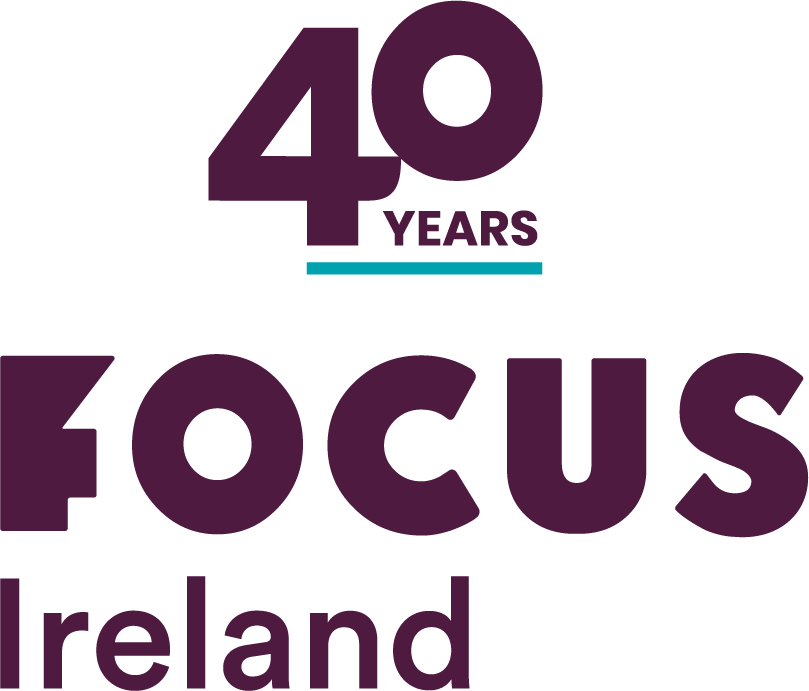New figures show homeless figures back to pre-pandemic levels as numbers in Emergency Accommodation rise over a significant 10,000 once again
Figures published by the Department of Housing today (27th May) show the number of people who are officially homeless has risen again above 10,000, a level not seen since before the pandemic. There were 10,049 people in emergency homeless accommodation in April, 224 more than in March and 1,967 more than a year ago. Homelessness first went over 10,000 in February 2019, and was last over this level in February 2020.
Focus Ireland CEO Pat Dennigan said: “It is appalling to see that the progress made through such hard work during the pandemic has so quickly been lost, and we are back to rising numbers of adults and children experiencing homelessness. Crossing this dreadful threshold must trigger a much stronger and urgent response from the Government and we must not drift to ever higher levels. We know the pressures which are driving people into homelessness and trapping them there, we also know the solutions, some are long-term and some would have immediate effect. There needs to be urgent and effective action on both levels.”
The practical measures which would make an immediate difference are: effective regulation to stop rented homes being turned into short-term holiday lets, encouraging landlords to stay in the market and tackling the problems with the ‘Housing Assistant Payment’ (HAP) which are driving people into debt, arrears and homelessness.
The measures which will have a longer-term impact, but need to be addressed now include: measures to tackle inflation in the construction sector and rising interest rates; measures to end land-hoarding, vacancy and dereliction.
The problems with HAP are urgent and can be quickly resolved with political will. The problem is that despite soaring inflation and rising rents, the HAP levels have not increased since 2016. Even where landlords are keeping to legally permitted rent increases, accumulated increases are over 20% over that time. Tenants on very low incomes have had to fill the gap, forcing them into debt and arrears and leaving many on the brink of homelessness.
Mr Dennigan added: “We must ensure that all HAP recipients have an adequate income after they pay their housing costs. Focus Ireland are asking that HAP levels reflect the realities of the housing market. Local authorities should also simplify the system by collecting all rent and passing on the top-up and state contribution to the landlord. This would make the scheme more attractive to landlords and, along with other measures, discourage landlords from selling up.”
Focus Ireland has stated that possible measures to clamp down on short-term rents and vacant homes must be delivered on this occasion.
Mr Dennigan said: “When we first crossed the 10,000 threshold, the then Government made a number of similar commitments. It is striking to see that the problems they promised to solve then are exactly the same ones we are still talking about today. There is a pattern of identifying problems, making announcements that they will be solved, introducing half measures and then not policing them. Inevitably the problems reemerge, causing a further wave of homelessness. many people are disillusioned with a lack of action. We cannot continue with this cycle of ineffectual action.
“Given the deepening crisis we must concentrate on making sure that this time it really happens. Ireland has shocking levels of vacant homes and derelict building land, and we have talked about it for decades. The Government is saying that the challenges raised by the war in Ukraine means they have emergency powers they did not have before. If they can use these emergency powers to transform our approach to the blight of dereliction and vacancy this would be a win for our entire society. It would help to fix our broken housing system by delivery of more social housing, affordable rental, and purchase homes.”
The April figures report a total of 1,308 families with 2,944 children homeless compared – a significant increase of 70 families and 133 children homeless when compared to the previous month.
Note to Editors on HAP
HAP is a rent subsidy scheme operated by the Department of Housing via local authorities. It has largely replaced the Rent Supplement Scheme. HAP households pay the local authority a differential rent similar to all social housing tenants, but in many instances, they must also pay a top-up to the landlord. This is overwhelming especially for vulnerable families on the brink, having to already deal with the cost-of-living crisis.
To further empathise HAP’s importance, a Department of Housing progress report (December 2021) showed the payment was the main exit from homelessness in 2021, with an average of 69% of homeless exits each quarter occurring due to HAP tenancies in the private market.
To further highlight its prevalence, a new study from the Economic and Social Research Institute (ESRI) states that almost 300,000 or 54 % of renting households received some kind of State support, which includes HAP, to help with the cost of housing in 2020.
Conor Culkin
Communications Officer
Focus Ireland
086 468 0442

